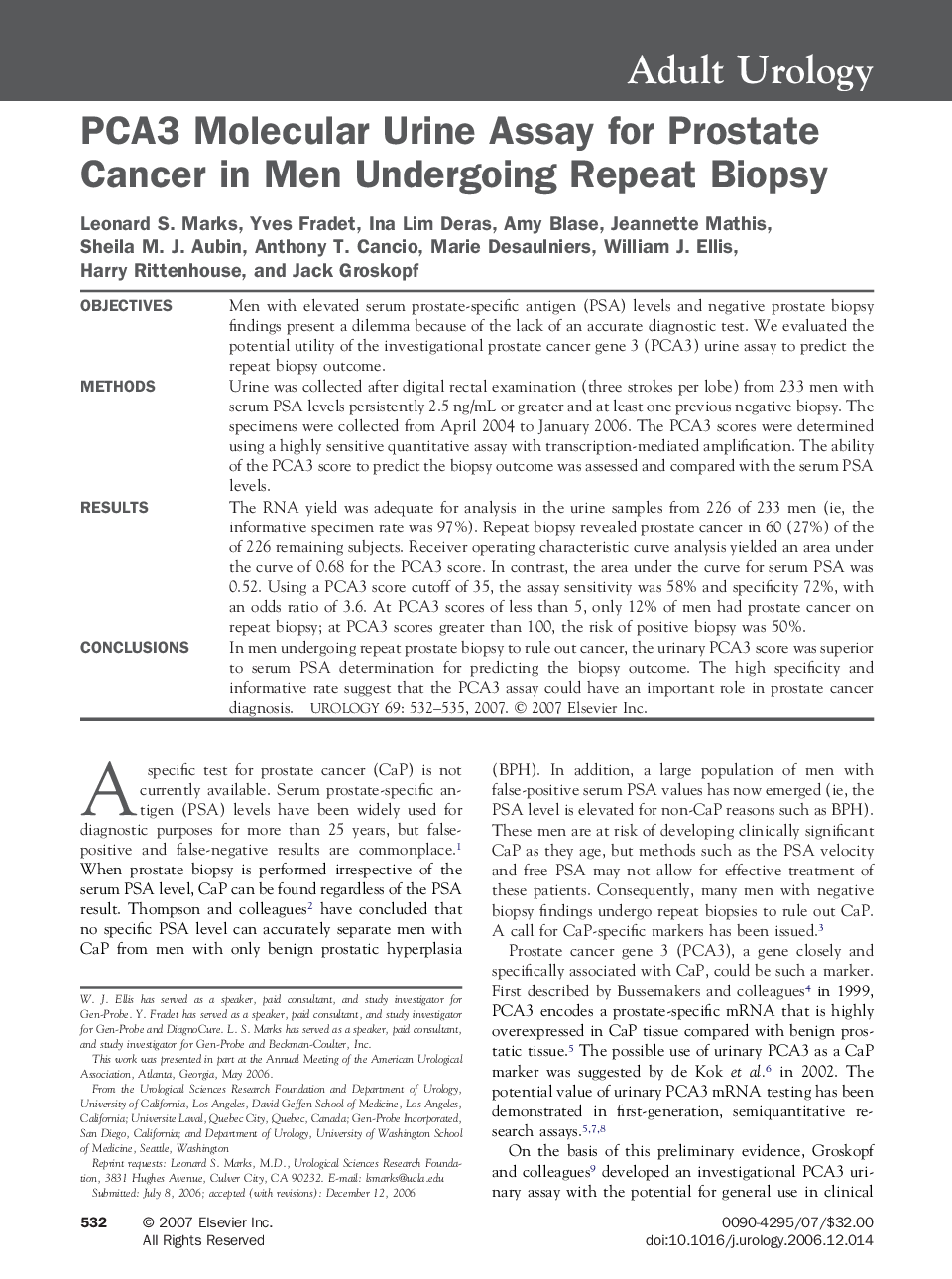| Article ID | Journal | Published Year | Pages | File Type |
|---|---|---|---|---|
| 3906390 | Urology | 2007 | 4 Pages |
ObjectivesMen with elevated serum prostate-specific antigen (PSA) levels and negative prostate biopsy findings present a dilemma because of the lack of an accurate diagnostic test. We evaluated the potential utility of the investigational prostate cancer gene 3 (PCA3) urine assay to predict the repeat biopsy outcome.MethodsUrine was collected after digital rectal examination (three strokes per lobe) from 233 men with serum PSA levels persistently 2.5 ng/mL or greater and at least one previous negative biopsy. The specimens were collected from April 2004 to January 2006. The PCA3 scores were determined using a highly sensitive quantitative assay with transcription-mediated amplification. The ability of the PCA3 score to predict the biopsy outcome was assessed and compared with the serum PSA levels.ResultsThe RNA yield was adequate for analysis in the urine samples from 226 of 233 men (ie, the informative specimen rate was 97%). Repeat biopsy revealed prostate cancer in 60 (27%) of the of 226 remaining subjects. Receiver operating characteristic curve analysis yielded an area under the curve of 0.68 for the PCA3 score. In contrast, the area under the curve for serum PSA was 0.52. Using a PCA3 score cutoff of 35, the assay sensitivity was 58% and specificity 72%, with an odds ratio of 3.6. At PCA3 scores of less than 5, only 12% of men had prostate cancer on repeat biopsy; at PCA3 scores greater than 100, the risk of positive biopsy was 50%.ConclusionsIn men undergoing repeat prostate biopsy to rule out cancer, the urinary PCA3 score was superior to serum PSA determination for predicting the biopsy outcome. The high specificity and informative rate suggest that the PCA3 assay could have an important role in prostate cancer diagnosis.
